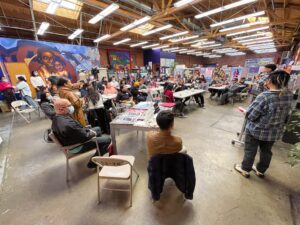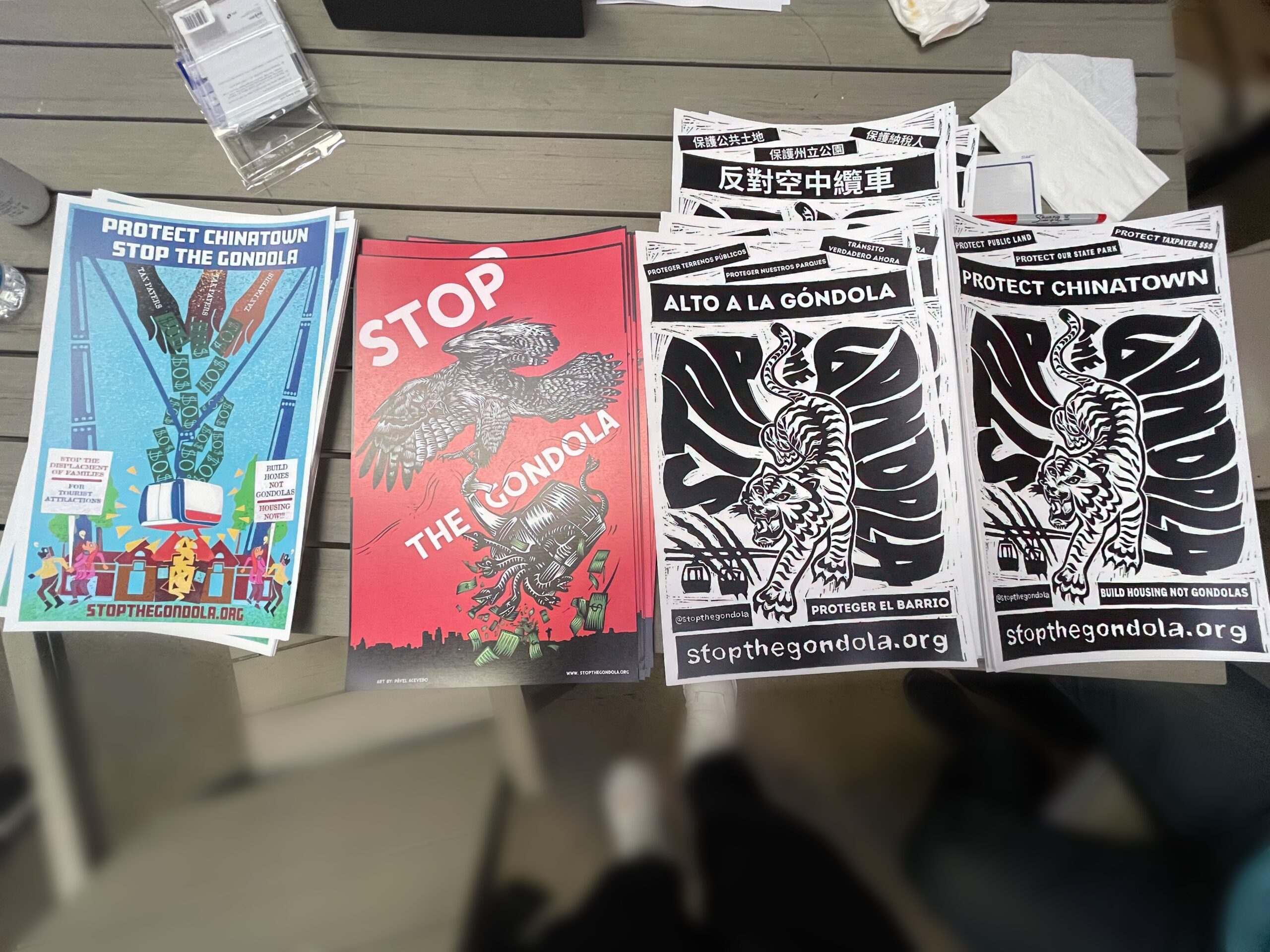
By SAJE Intern Nicolas Segura
April 15, 2024
On Thursday, April 4, SAJE hosted a community discussion on the gondola proposed for moving riders between Union Station and Dodger Stadium. Supporters of the project hope to reduce traffic in the Chinatown-Elysian Park area during game days by having stadium-goers fly over these neighborhoods.
Members of the Stop the Gondola campaign came to SAJE to speak to the community about why all of Los Angeles should be concerned about the development. They also proposed an alternative public transit project that would benefit the community and stadium goers. People from all across the city came to SAJE to learn more about the proposed gondola.
The conversation first focused on the origins of the proposed gondola. For many years, baseball season has created more headaches than excitement for Dodger Stadium’s neighbors. Residents get stuck in traffic jams and struggle to find parking spots near their homes as resident-only parking is extremely limited. In 2018, former Dodgers team owner Frank McCourt proposed the gondola as the city’s $125 million solution to reduce car dependency during baseball season (the project is now estimated to cost more than $500 million.) The hope is that fans will commute from elsewhere in the city by trains or buses to Union Station, the city’s public transit hub, and board the gondola there. The gondola will not be a part of Los Angeles’ public transit system, but a form of private transportation headed by Los Angeles Aerial Rapid Transit, or LA ART. Proponents claim its construction and operation will not be financed by the city or taxpayer dollars but by Frank McCourt’s company, McCourt Global, and his other partners and affiliates.
Stop the Gondola identified several problems with this plan. First, the gondola will only provide transit from Union Station to the stadium and back. The stadium hosts 88 home games and about 10 concerts a year. This is a half-billion-dollar investment in a transit project that will not serve the needs of everyday Angelenos. Additionally, UCLA’s mobility lab conducted a study on the project, and their researchers found that it will do very little to reduce traffic because it will only carry a total of 4,690 people per game day, and Dodger Stadium seats 56,000 people.
Many are also concerned that the gondola will increase gentrification in surrounding areas, including Olvera Street, Chinatown, LA State Historic Park, Elysian Park, and Echo Park. Rising rents are already displacing longtime residents of these neighborhoods, and the gondola is potentially just part of the threat to surrounding communities. McCourt, who owns a large part of the Dodger Stadium parking lots, has said he wants to develop a housing and entertainment complex on the lots. He cannot proceed with his plan because he bankrupted the Dodgers in 2011 and cannot get the city’s approval. To circumvent this block, he could try and use the Transit Oriented Communities initiative, a city program to incentivize and accelerate the development of housing close to transit stops. If his gondola stops near his development, he may qualify for the program and be allowed to break ground.
The People’s Elysian Park Transit Project was presented as a community-focused alternative. The project proposes an expansion of the Dodgers Expressway to include a dedicated bus lane that will run every day, not just on game days. The new bus lane would have about 20 stops in the Elysian Park area, and the frequency of buses could be easily adjusted to meet game day demand. Other bus routes could be diverted into Dodger Stadium during events, resuming normal routes on other days. This would make Elysian Park more accessible to all: community members and tourists alike.
At SAJE, attendees talked about the project from different perspectives; They largely agreed that the gondola would primarily benefit McCourt and his partners, and that it needed to be more community-responsive. One resident who lives near the LA Memorial Coliseum voiced her concern about the gondola and the 2028 Olympics. She felt that tourists would create chaos and disruption near arenas hosting Olympic events and that the gondola would not do enough to help. Another attendee remarked that Los Angeles was just being a typical city by developing. Eric Adams, a member of the Friends of Elysian Park, responded, “We aren’t against development, just bad development.”

